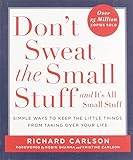Many areas of our life need healing.
One important part of our life is our sexuality. Our feelings and beliefs about our sexuality, our ability to nurture, cherish, and enjoy our sexuality, our ability to respect ourselves sexually, our ability to let go of sexual shame and confusion, may all be impaired or confused by our co-dependency.
Our sexual energy may be blocked. Or for some of us, sex may be the only way we learned to connect with people. Our sexuality may not be connected to the rest of us; sex may not be connected to love - for others or ourselves.
Some of us were sexually abused as children. Some of us may have gotten involved in sexuality addictive behaviors - compulsive sexual behaviors that got out of control and produced shame.
Some of us may have gotten involved in sexual co-dependency: not paying attention to what we wanted, or didn't want, sexually; allowing ourselves to get involved sexually because it was what the other person wanted; shutting off our sexuality along with our other feelings; denying ourselves healthy enjoyment of ourselves as sexual beings.
Our sexuality is a part of ourselves that deserves healing attention and energy. It is a part of us that we can allow to become connected to the whole of us; it is a part of us that we can stop being ashamed of.
It is okay and healthy to allow our sexual energy to open up and become healed. It is connected to our creativity and to our heart. We do not have to allow our sexual energy to control our relationships or us. We can establish and maintain healthy, appropriate boundaries around our sexuality. We can discover what that means in our life.
We can enjoy the gift of being human beings who have been given the gift of sexual energy, without abusing or discounting that gift.
Today, I will begin to integrate my sexuality into the rest of my personality. God, help me let go of my fears and shame around my sexuality. Show me the issues I need to face concerning my sexuality. Help me open myself to healing in that area of my life.
From The Language of Letting Go by Melody Beattie ©1990
Buy today >> The Language of Letting Go
-




 Affirmations for the Inner Child
Affirmations for the Inner Child Codependent No More: How to Stop Controlling Others and Start Caring for Yourself
Codependent No More: How to Stop Controlling Others and Start Caring for Yourself Alcohol & Other Drug Recovery
Alcohol & Other Drug Recovery






